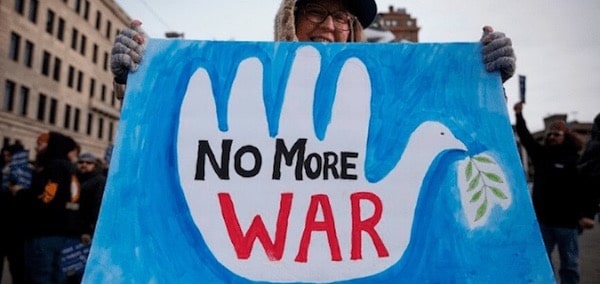The U.S. veto trashes the UN’s efforts to convince armed factions in more than a dozen countries to call for temporary truces as the world battles the pandemic.
International diplomats were stunned and frustrated Friday after the United States again blocked a United Nations resolution to call for a global ceasefire during the COVID-19 pandemic, only because the Trump administration objected to an indirect reference to the World Health Organization (WHO).
The Security Council has been wrangling for more than six weeks over the resolution, which was intended to demonstrate global support for the call for a ceasefire by the U.N. Secretary-General Antonio Guterres.
However, the main source for the delay was the U.S. refusal to endorse a resolution that urged support for the WHO’s operations during the COVID-19 pandemic.
The U.S. objected to any mention of the WHO in the resolution. President Donald Trump has claimed WHO withheld information from world governments about the new coronavirus, while saying–without any supporting evidence–that the global health agency was privy to information about the virus originating in a lab in China.
Now, the U.S. position to the U.N. Security Council delays all the work carried out by this organization that had managed to convince the armed factions in more than a dozen countries to call for temporary truces as the world battles the pandemic. It had also been negotiating with the U.S. in order to reach a compromise on this matter.
Until Thursday night, it appeared that the compromise resolution had the support of the U.S. mission, but on Friday morning, that position switched and the U.S. “broke silence” on the resolution, raising objection to the phrase “specialist health agencies,” and blocking movement towards a vote.
The French delegation to the U.N. Security Council, which had been forced to lead an effort to finally reach a compromise, was surprised by the response. They were confident that the U.S. would agree to a resolution containing the phrase “specialized health agencies,” which somehow appeases the United States and China, which has insisted on a reference to the WHO.
“Obviously they have changed their mind within the American system so that wording is still not good enough for them,” one official told The Guardian.
It might be that they just need a bit more time to settle it amongst themselves, or it might be that someone very high up has made a decision they don’t want it, and therefore it won’t happen. It is unclear at this moment, which one it is.
For her part, Helen Clark, former prime minister of New Zealand, wrote that the U.S. is playing the “blame game” rather than joining with other countries to focus efforts on the global health crisis and put fighting on hold.
In addition to rejecting the ceasefire resolution, Trump has also withheld funding for WHO in recent weeks, claiming the agency mismanaged the crisis and that
So much death has been caused by their mistakes.
Several analysts say that the Trump government, through these actions, has only been covering up and distracting the world’s attention so as not to accept the negligence with which it has managed the impact of COVID-19 on the country.
The U.S. has had far less success than a number of other wealthy countries at “flattening the curve.” Earlier this month the Centers for Disease Control and Prevention (CDC) projected a sharp rise in COVID-19 cases and deaths, with deaths reaching 3,000 per day by June 1, as the Trump administration pushed states to reopen their economies.
On the other hand, according to a Foreign Policy report last month the Trump administration may also be reluctant to sign the resolution because a ceasefire could impede its counterterrorism operations and key ally Israel’s ability to conduct military operations throughout the Middle East.
“It’s bad enough that Trump is responsible for so many deaths in his own country, now he is actively complicit in causing even more across the globe,” tweeted human rights advocate Dan Sohege of the U.K. charity Stand for All.
Meanwhile, talks will continue next week at the Security Council to explore whether some other way around the impasse can be found.
This article previously appeared in Telesur

